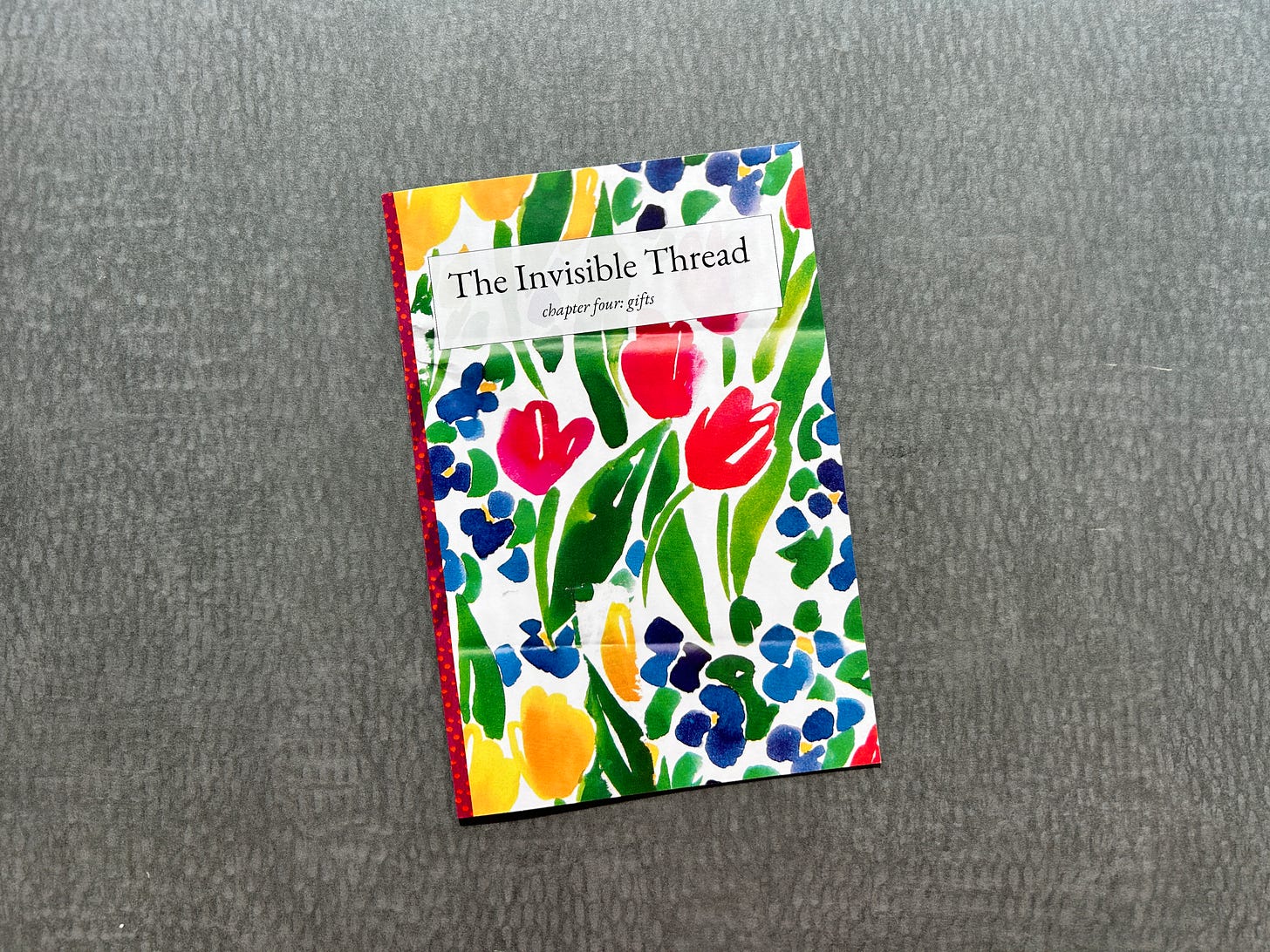Medicine or poison? Depends on the dose
The connection between gifts, marriage and anything else that, in the wrong quantity, will kill you.
What a sweet time of year to celebrate gifts.
My latest zine is finally in the hands of paid subscribers, those folks who chip in a little each month to support The Invisible Thread, a newsletter approaching its fourth birthday.
This is the fourth issue of the print zine, and the theme is a special one: gifts.
Readers know that my curiosity about gifts goes back to early in the pandemic, when I discovered Buy Nothing groups and the concept of the gift economy. I gathered up several past stories around the concept of gifts for the zine, but I also wrote a new, short piece about the etymological connection between gift, marriage and, surprisingly, poison.
As we settle into the new year, I hope this exploration into the world of gifts has helped you treasure things you might not have seen as gifts and, conversely, to find a gift in something that might feel only like a burden.
I love learning about the history and connection between words because they help me expand my understanding of what those words are trying to say not just what they mean.
I’m grateful for the opportunity to share this here. Thanks for the gift of your time, your attention, your support.
Addie
Jan. 8, 2025
The New York Times recently published a story about a woman in San Antonio whose set of china had been passed down for four generations.
Each caretaker fixed any broken pieces so the next generation could have this family heirloom. The only problem is that the woman’s grown sons aren’t interested in the china.
This was a front-page story in the country’s most influential newspaper, not because her story is unique, but because it is universal: Every gift comes with a burden.
Taking care of the china became a metaphor for caring for the family story. Of remembering where they came from, of the people who came before.
The story reminded me that, in Swedish, the word gift means both married and poison.
The etymological connection between gift, poison, and love extends to many languages with Old Norse roots, and all of them are rooted in gipt, or payment for a wife.
A dowry.
In Germany, around the year 800, gipt became a euphemism for poison. Medicine, after all, is a remedy that, in the wrong quantity, might kill you. Like a bee sting.
In other words: The dose makes the poison.
The connection between present and poison exists far beyond Europe, to Polynesia and ancient India, according to French sociologist Marcel Mauss, who wrote a ground-breaking essay The Gift: Forms and Functions of Exchange in Archaic Societies exactly 100 years ago.
Keep reading with a 7-day free trial
Subscribe to The Invisible Thread to keep reading this post and get 7 days of free access to the full post archives.






